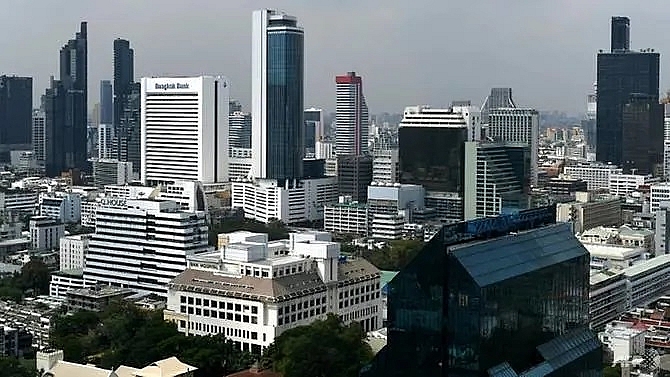US-China big power rivalry set for Bangkok staging
 |
| Foreign ministers from 10 Southeast Asian countries are meeting in Bangkok this week. (AFP/MOHD RASFAN) |
Foreign ministers from 10 Southeast Asian countries are meeting in the Thai capital this week.
They will be joined by US Secretary of State Mike Pompeo and his Chinese and Russian counterparts, with old flashpoints in the disputed South China Sea and denuclearisation of the Korean peninsula set to dominate.
New security tensions are also likely to be addressed, including last week's unprecedented joint China-Russia bomber patrol over airspace claimed by Tokyo and South Korea.
China denies it flouted Japanese or Korean airspace, but the exercise has rattled Tokyo and Seoul - and posed a new test of Washington's influence in a region home to the two crucial US Asia allies.
Pompeo will wield a message of reassurance that the US is still fully engaged in Asia as China cements political and military ties with its neighbours.
"This administration doesn't just talk about our commitment to the region, we are actively pursuing closer ties with our friends and partners," a senior State Department official said in a briefing before the trip.
That includes "ensuring the freedom of seas and skies; insulating sovereign nations from external coercion," the official added.
The administration of Donald Trump, which summarily yanked the US from a massive Asia-Pacific trade pact, has launched a rebranded "Indo-Pacific" security, open seas and commerce strategy.
The creeping progress of a code of conduct governing the South China Sea, where China is accused of deploying warships, arming outposts and ramming fishing vessels in disputed territory, will also be discussed, according to the State Department briefing.
But China and Russia, who are enjoying increasingly close ties, are seeking to counter-balance US moves in Southeast Asia.
Sergei Lavrov, Russia's Foreign Minister, on Tuesday suggested US attempts to bind Southeast Asia into its vision are undercutting ASEAN's regional influence.
"It is very, very simple," he told AFP. "Indo-Pacific strategies ... (they) undermine ASEAN centrality."
On Thursday, Pompeo is set to hold talks with Chinese Foreign Minister Wang Yi, a meeting framed by the trade war between the two global superpowers and the tussle over free passage in the South China Sea, one of the world's most important shipping routes.
"The big picture here is we are moving from an era of Asia-Pacific prosperity to a more insecure and contested region," said Thitinan Pongsudhirak, a political analyst at Bangkok's Chulalongkorn University.
Ongoing US-led attempts to prod North Korea into giving up its nuclear weapons programme are expected to be discussed - although a Thai Ministry of Foreign Affairs spokeswoman said Pyongyang will not send a ministerial-level delegate.
What the stars mean:
★ Poor ★ ★ Promising ★★★ Good ★★★★ Very good ★★★★★ Exceptional
 Tag:
Tag:
Related Contents
Latest News
More News
- Russian President congratulates Vietnamese Party leader during phone talks (January 25, 2026 | 09:58)
- Worldwide congratulations underscore confidence in Vietnam’s 14th Party Congress (January 23, 2026 | 09:02)
- Political parties, organisations, int’l friends send congratulations to 14th National Party Congress (January 22, 2026 | 09:33)
- 14th National Party Congress: Japanese media highlight Vietnam’s growth targets (January 21, 2026 | 09:46)
- 14th National Party Congress: Driving force for Vietnam to continue renewal, innovation, breakthroughs (January 21, 2026 | 09:42)
- Vietnam remains spiritual support for progressive forces: Colombian party leader (January 21, 2026 | 08:00)
- Int'l media provides large coverage of 14th National Party Congress's first working day (January 20, 2026 | 09:09)
- Vietnamese firms win top honours at ASEAN Digital Awards (January 16, 2026 | 16:45)
- ASEAN Digital Ministers' Meeting opens in Hanoi (January 15, 2026 | 15:33)
- ASEAN economies move up the global chip value chain (December 09, 2025 | 13:32)






















 Mobile Version
Mobile Version